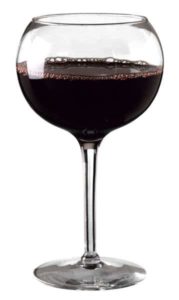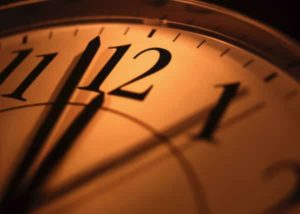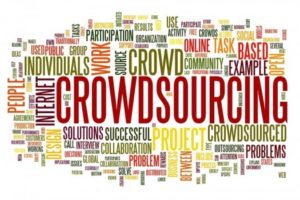Should you drink whole milk or skim? Enhanced skim? What about the new “designer” milk from Coca-cola? I recently sorted it all out for Dr. Oz.
My take on the latest diet and nutrition headlines.
Should you drink whole milk or skim? Enhanced skim? What about the new “designer” milk from Coca-cola? I recently sorted it all out for Dr. Oz.
 My column in this Style Magazine has tips for stashing vegetables in places neither your kids (nor your dinner guests) will ever suspect. All’s fair in love and vegetables, I like to say.
My column in this Style Magazine has tips for stashing vegetables in places neither your kids (nor your dinner guests) will ever suspect. All’s fair in love and vegetables, I like to say.
If, however, you decide to jump on the bandwagon and feature “micro-livestock” at your next dinner party, I advise against secrecy. Your friends may be able to forgive undisclosed cauliflower but might not feel the same about insects. I discussed the nutritional, ecological, and culinary arguments for eating bugs with (a rather squeamish) Tom Hall of WYPR as well as in this article for Food and Nutrition Magazine.
Mealworms on the menu too gross for you? My extended conversation with Jonathan Bailor of the Smarter Science of Slim focused on more conventional crops (!) and the role of urban gardens, the farm bill, and schoolyard vegetable patches in bringing communities closer and obesity rates down.
One thing that probably won’t be all that much help in the fight against obesity is garcinia cambogia. Despite its popularity, a review of the science suggests that any advantage might be more mental than anything else. I’m afraid the news on manuka honey wasn’t much better.
For those who enjoy cooking, here are two somewhat unconventional ways to cook two very conventional items that are in abundance at the the farmer’s market right now. And, while I hate to take sides in a mother/daughter nutrition spat, I’m afraid I had to side with Mom on this one.
Keep those questions coming! (What would I write about otherwise??)
 Nutrition myths were crumbling left and right this week. In this podcast, I look at the research on garcinia cambogia for weight loss. (Short answer: Save your Money) In another show, I looked into rumors that drinking red wine blocks cholesterol in red meat. As it turns out, no red meat was involved in this research!
Nutrition myths were crumbling left and right this week. In this podcast, I look at the research on garcinia cambogia for weight loss. (Short answer: Save your Money) In another show, I looked into rumors that drinking red wine blocks cholesterol in red meat. As it turns out, no red meat was involved in this research!
While I was at it, I tackled the urban legend that chlorophyll strengthens your blood. And speaking of blood, this episode discusses whether juicing is a healthy habit or a blood sugar bomb.
It wasn’t all myth-busting though. It’s a fact that certain nutrients can help protect your eyes as you age. Here are the best food picks for healthy eyes. And for those who are easily distracted in the kitchen, here’s reassuring news about the effect of overcooking on protein. (No promises on taste or texture, though.)
Finally, here’s one of the most, ah, interesting stories I’ve reported on this year: a movement to shift the world toward insects as a safe and sustainable source of protein. No crickets were harmed in the writing of this story. At least, not by me.
 A few months ago, I spoke at a conference attended mostly by fitness trainers and enthusiasts, and I noticed that about 75% of them were wearing activity monitors on their wrists or clipped to their clothing. To be honest, it seemed sort of strange and obsessive, but–hey–everyone needs a hobby. So I feel a little sheepish about admitting to the fact that I am now the proud owner of a Fitbit One and am obsessively watching my daily step count and analyzing my sleep patterns! And I have to say, having an objective way to measure my level of activity really has made a positive difference. If I’ve failed to crack 10,000 steps by 8pm, I’ll go out for a walk instead of sitting down at my computer or popping in a DVD. For more on how “self-quantifiers” are using technology to monitor and improve their health, see this article I wrote for Intel iQ.
A few months ago, I spoke at a conference attended mostly by fitness trainers and enthusiasts, and I noticed that about 75% of them were wearing activity monitors on their wrists or clipped to their clothing. To be honest, it seemed sort of strange and obsessive, but–hey–everyone needs a hobby. So I feel a little sheepish about admitting to the fact that I am now the proud owner of a Fitbit One and am obsessively watching my daily step count and analyzing my sleep patterns! And I have to say, having an objective way to measure my level of activity really has made a positive difference. If I’ve failed to crack 10,000 steps by 8pm, I’ll go out for a walk instead of sitting down at my computer or popping in a DVD. For more on how “self-quantifiers” are using technology to monitor and improve their health, see this article I wrote for Intel iQ.
Once you start down the self-quantification path, it can be a slippery slope. My Fitbit One can be set up to coordinate with a number of popular online diet trackers, such as My Fitness Pal. But if you’re using one of these to log your calorie or nutrient intake, keep an eye out for this common hazard.
Last week’s podcast delved into a somewhat lower technology solution to persistent digestive problems. Read more about the FODMAP diet and whether it might be the solution to your tummy troubles. Sometimes, of course, tummy troubles are actually caused by food poisoning–but is there any way to know which food was the culprit? More info on that here.
Finally, fluoridation is a controversial topic that’s being debated in communities around the U.S. This week’s podcast reviews the main arguments for and against adding fluoride to the public water supply, along with some thoughts on the so-called “precautionary principle.”
For more food and nutrition hijinks, join me (and a few thousand other food- and nutrition-obsessed folks) on Facebook or Twitter.
 Recently, a surprising pair of research studies shed new light (from two different directions) on an old question: Is late night eating bad for you?
Recently, a surprising pair of research studies shed new light (from two different directions) on an old question: Is late night eating bad for you?
The first finds that our appetite tends to peak at around 8pm. Should we listen to our bodies or to the weight loss gurus who tell us NEVER to eat after dinner? My thoughts in this podcast.
The second study found that eating late may, in fact, impede weight loss–even it doesn’t lead to eating more. Drat. My thoughts on how (or whether) to change your meal schedule in this podcast.
There was the usual round up of interesting questions in the Nutrition Diva mailbag:
Elsewhere across the web, my thoughts on sprouted grains in Men’s Fitness, some great new apps that can help you eat healthy and well for Intel IQ, and the debut of my new Smart Food column debuted in Baltimore Style magazine.
Originally published on Intel IQ
A growing tribe of health-conscious techies are obsessively tracking everything from REM sleep to mood swings in an effort to better understand (and ultimately, improve) how they feel and function. Of course, keeping a manual (or even digital) log of daily habits or measurements is nothing new.
The real buzz is in wearable devices that automate the collection of your bio-data. A growing number of gadgets, most in the $100-200 range, ride along in a pocket or on your wrist and track everything from your level of physical exertion to your blood pressure, heart rate, breathing patterns, sleep, and mood. Extreme “body-hackers” may even have sensors surgically implanted to measure moment-to-moment changes in blood sugar. Continue reading “The Quantifiable Self”
Are you an evening snacker? You’re not alone. Even though people in the U.S. commonly eat their largest meal at the end of the day, many people still have a powerful urge to snack after dinner. Weight loss clients often tell me that they eat well all day but then everything falls apart in the evening. After dutifully sticking to their healthy, low calorie eating plan through breakfast, lunch, and dinner, they find themselves powerless to resist high-calorie salty snacks and sweets in the evening. It’s as if we just we run out of will power at the end of the day. But it turns out there may be a biological explanation for this.
This article also available as a podcast
Researchers at Oregon Health and Sciences University recently found that our appetite has a strong circadian (or, daily) rhythm that’s completely independent of the timing of our meals or our sleep patterns. No matter what eating and sleeping schedule the subjects in this study were on, their appetite peaked at 8pm and was lowest at 8am.
Now consider the usual dietary advice: We’re told to always eat breakfast and refrain from snacking after dinner. In other words, we’re supposed to eat when we don’t feel like it and stop eating just as our appetite reaches its peak. No wonder we struggle!
I have to tell you that when I first read this research, my initial response was: Why fight biology? Why compel ourselves to eat breakfast if we’re not hungry and then force ourselves to stop eating right as our body’s signal to eat is strongest? Don’t our bodies usually know best about these things? Then again, our bodies obviously weren’t designed to live sedentary lives in which we are constantly surrounded by high-calorie foods.
We also go to bed a lot later and get sleep less than we used to. Sleep deprivation has a direct effect on hunger and appetite, making us feel hungrier and causing us to eat more than we do on days when we’re well rested. In particular, being under-rested seems to stimulate the desire for high-calorie foods.
It’s not surprising, therefore, that sleep deprivation is associated with weight gain. In fact, one recent study found that skimping on sleep every night for a week led to an average weight gain of 2 pounds! Fortunately, when the subjects in that study got a full night’s sleep every night for a week, they lost the weight.
That may not be much help if you’re under-rested because of a new baby or a demanding job or some other factor beyond your control. But if you’re sacrificing precious hours of sleep to hang out on Facebook or watch Family Guy marathons—and the number on the scale is inching upwards—it might be time to rethink your priorities.
Steven Shea is one of the scientists who did the research on appetite and circadian rhythms. As he explains, “You stay up later, during a time when you’re hungrier…and you’re more likely to eat during that time. Then you get less sleep, both of which contribute to weight gain.” It’s a perfect storm, isn’t it?
One popular weight loss strategy is to never eat after 8pm. Seeing as people often eat a considerable number of recreational calories in the evening, following this rule could definitely help you lose some weight. On the other hand, it takes an awful lot of will-power to stick to the 8pm rule. And Shea’s research might explain why.
Going to bed earlier, as Shea suggests, could mean that you sleep through at least some of this period of craving and end up eating less. It would also probably mean that you get more sleep, which could reduce cravings for high-calorie foods the next day.
See also: Why We Overeat
“If weight loss is a goal,” Shea says, “knowing how your body operates will help you make better choices. Going to bed earlier, getting enough sleep, and choosing lower-calorie foods rather than higher-calorie foods in the evening can all help with weight loss.”
Originally published at QuickandDirtyTips.com
Originally published on Intel IQ
 One of the most inspiring things about our brave new world of technology is the way it seems to bring out everyone’s collaborative nature. From open-source coding to crowd-sourced encyclopedias, we’re working together like never before, sparking creativity and accelerating the pace of progress.
One of the most inspiring things about our brave new world of technology is the way it seems to bring out everyone’s collaborative nature. From open-source coding to crowd-sourced encyclopedias, we’re working together like never before, sparking creativity and accelerating the pace of progress.
Turns out, you can even crowd-source your motivation! Whether your goal is to run your first 10K, quit smoking, or lose that last (or first) ten pounds, tapping into a network of supportive friends or even like-minded strangers can increase your chance of success. Continue reading “Crowd-sourcing your motivation”